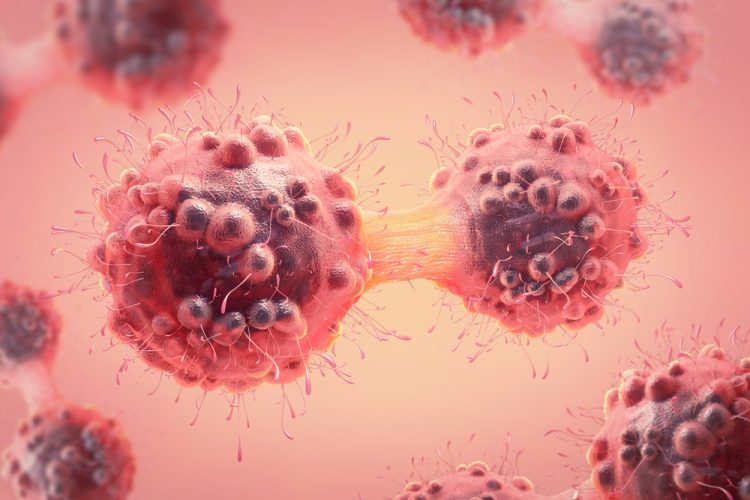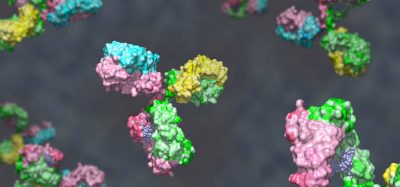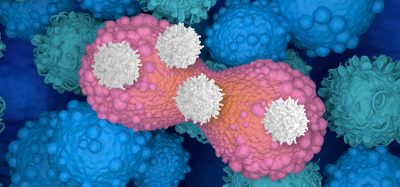MIT study reveals how lipid imbalance affects cancer growth in mice
Posted: 21 October 2021 | Anna Begley (Drug Target Review) | No comments yet
In a new study, a calorie-restricted diet significantly reduced tumour growth in mouse models, suggesting new possibilities for cancer therapies.


A new study from the Massachusetts Institute of Technology (MIT), US, that analysed two different diets in mice reveals how those diets can affect cancer cells. According to the researchers, this offers an explanation for why restricting calories may slow tumour growth and how manipulating lipid levels could be used in future therapies.
ARTICLE: Targeting SARS-CoV-2 replication with inhibitors of lipid metabolism
FIND OUT MORE HERE
The team explain that cancer cells consume a great deal of glucose, so some scientists had hypothesised that either the ketogenic diet or calorie restriction might slow tumour growth by reducing the amount of glucose available. However, the team’s initial experiments in mice with pancreatic tumours showed that calorie restriction has a much greater effect on tumour growth than the ketogenic diet, so the researchers suspected that glucose levels were not playing a major role in the slowdown.
To dig deeper into the mechanism, the team analysed tumour growth and nutrient concentration in mice with pancreatic tumours, which were fed either a normal, ketogenic or calorie-restricted diet. In both the ketogenic and calorie-restricted mice, glucose levels went down. In the calorie-restricted mice, lipid levels also went down, but in mice on the ketogenic diet, they went up.
Reduce preclinical failures with smarter off-target profiling
24 September 2025 | 15:00PM BST | FREE Webinar
Join this webinar to hear from Dr Emilie Desfosses as she shares insights into how in vitro and in silico methods can support more informed, human-relevant safety decisions -especially as ethical and regulatory changes continue to reshape preclinical research.
What you’ll learn:
- Approaches for prioritizing follow-up studies and refining risk mitigation strategies
- How to interpret hit profiles from binding and functional assays
- Strategies for identifying organ systems at risk based on target activity modulation
- How to use visualization tools to assess safety margins and compare compound profiles
Register Now – It’s Free!
When lipids are not available in a tissue, cells can make their own. As part of this process, they need to maintain the right balance of saturated and unsaturated fatty acids, which requires the enzyme stearoyl-CoA desaturase (SCD), which is responsible for converting saturated fatty acids into unsaturated fatty acids.
Both calorie-restricted and ketogenic diets reduce SCD activity, but mice on the ketogenic diet had lipids available to them from their diet, so they did not need to use SCD. Mice on the calorie-restricted diet, however, could not get fatty acids from their diet or produce their own and tumour growth slowed significantly compared to mice on the ketogenic diet.
“Not only does caloric restriction starve tumours of lipids, it also impairs the process that allows them to adapt to it. That combination is really contributing to the inhibition of tumour growth,” summarised lead author Evan Lien.
Although the study, published in Nature, showed that calorie restriction has beneficial effects in mice, the researchers do not recommend that cancer patients follow a calorie-restricted diet. However, they believe that cancer cells’ dependence on the availability of unsaturated fatty acids could be exploited to develop drugs that might help slow tumour growth.
One possible therapeutic strategy could be inhibition of the SCD enzyme, which would cut off tumour cells’ ability to produce unsaturated fatty acids. “The purpose of these studies is not necessarily to recommend a diet, but it us to really understand the underlying biology,” Lien explained. “They provide some sense of the mechanisms of how these diets work and that can lead to rational ideas on how we might mimic those situations for cancer therapy.”
Related topics
Drug Targets, Enzymes, In Vivo, Lipidomics, Lipids, Oncology, Small molecule, Therapeutics
Related conditions
Cancer, Pancreatic cancer
Related organisations
Massachusetts Institute of Technology (MIT)
Related people
Evan Lien








